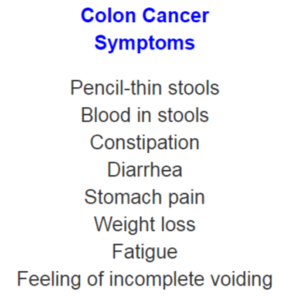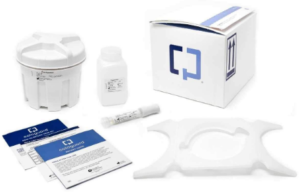
Don’t get your hopes up that your newly narrow stools are a side effect of Miralax.
“The mechanism of action for Miralax causes water retention in stool, producing a laxative effect,” explains Franjo Vladic, MD, a board certified gastroenterologist with Center for Digestive Health and Endoscopy Center in Ohio.
Dr. Vladic continues, “Consequently, the individual’s stool should ‘bulk’ up the stool, rather than appear thin or small.
“If the individual has small thin stools they should seek medical attention to ensure no organic pathology is causing the symptom.”
Skinny BMs are sometimes referred to as “narrow” or “pencil thin.” Sometimes the term “ribbon” comes up.
Bowel movements that suddenly begin taking on this kind of appearance, like Dr. Vladic says, are not being caused by Miralax.
However, thin stools can be caused by irritable bowel syndrome, a colon polyp, or…colon cancer. But don’t panic just yet.
First be sure that what you’re seeing coming out of you and into the toilet bowl are truly, genuinely pencil-shaped poops.
Are they actually narrow, skinny or like a ribbon?
If the cause is a colon polyp or cancer, this is because the polyp or tumor is partially obstructing the opening through which bowel movements are voided — if the tumor is close enough to that opening.
Only so much, then, of the feces can get squeezed through this smaller opening, and hence, the fecal matter comes out almost like how toothpaste comes out of a tube.
Again, Miralax is not the cause of thin stools, even though the timing of you taking the Miralax may coincide with this change in bowel movement appearance.
In fact, nowhere on drugs.com does it state that skinny or thin stools can be caused by Miralax, though the site does point out that more frequent BMs can result.
The site lists additional possible side effects such as gas, diarrhea, rectal pain, stomach pain, cramping, bloating and nausea, plus more serious side effects such as difficulty breathing and tightness in the chest.
What are the odds that colon cancer is causing your stools to be thin?
There is no data out as far as percentage, as in, “Based on your age and dietary habits, there’s a 40 percent chance that your skinny poops are due to colon cancer.”
Though the vast majority of colon cancer cases occur to people over the age of 50, people in their 30s, even 20s, have been known to develop this illness — though it’s quite rare in this age group.

Now that you know that Miralax likely is not the cause of your thin or narrow stools — according to Dr. Vladic — you might want to take a home colon cancer screening test called Cologuard — just to gain more reassurance.

The Cologuard kit
Cologuard is simple to use. You collect a BM sample and mail it off.
Cologuard uses state of the art DNA technology to identify abnormal cells in your sample.
Though Cologuard does not diagnose colon cancer, it’s excellent for detecting suspicious looking cells, and from that point, your doctor can recommend a colonoscopy.
Cologuard must be ordered by your doctor.
If your doctor has not heard of Cologuard, give him or her Cologuard’s number: 1-844-870-8870. New-onset thin stools should never be ignored.

Dr. Vladic’s special interests include acid reflux, colitis, colon cancer, GERD, heartburn, IBS, liver disease, obesity, pancreatitis and peptic ulcer, among many others.
 Lorra Garrick has been covering medical, fitness and cybersecurity topics for many years, having written thousands of articles for print magazines and websites, including as a ghostwriter. She’s also a former ACE-certified personal trainer.
Lorra Garrick has been covering medical, fitness and cybersecurity topics for many years, having written thousands of articles for print magazines and websites, including as a ghostwriter. She’s also a former ACE-certified personal trainer.
.—
Source: drugs.com/sfx/miralax-side-effects.html
Hemorrhoid Blood vs. Colon Cancer Blood: Is There a Difference?











